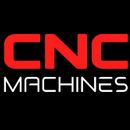Machine Tools: A Comprehensive Overview of Their History, Types, and Leading Brands

Machine Tools: A Comprehensive Overview of Their History, Types, and Leading Brands
Machine tools are fundamental to the manufacturing industry, enabling the precise shaping and machining of materials. They encompass various devices like lathes, milling machines, and drill presses, which are essential for producing intricate components and parts.
What are Machine Tools?
Machine tools are powered devices used to create, shape, or finish materials through cutting, grinding, drilling, or milling. They are vital in manufacturing and fabrication processes, providing the precision and accuracy necessary for high-quality production.
Key Characteristics of Machine Tools:
- Precision: Designed for accurate production, machine tools ensure tight tolerances in machining operations.
- Automation: Many modern machine tools are equipped with CNC (Computer Numerical Control) technology, allowing for automated and efficient production.
- Versatility: Machine tools can work with various materials, including metals, plastics, and composites.
The History and Origin of Machine Tools
Early Beginnings
The origins of machine tools can be traced back to ancient civilizations where basic tools were crafted to assist in material shaping. However, the significant evolution of machine tools began in the late 18th century.
- 18th Century Innovations: The first true machine tool, the lathe, emerged around this time, allowing craftsmen to create cylindrical shapes with greater accuracy.
- Henry Maudslay: Often regarded as a pioneer in machine tools, Maudslay invented the first screw-cutting lathe in 1797, enhancing the production of threaded parts.
The Industrial Revolution
The Industrial Revolution (late 18th to early 19th century) marked a critical turning point in the development of machine tools. This era introduced steam power, facilitating the creation of larger and more advanced machine tools.
- Mass Production: Machine tools enabled manufacturers to produce interchangeable parts, significantly increasing production efficiency and reducing costs.
- Technological Advancements: New machine tools, such as the milling machine and drill press, were developed to meet the growing demands of manufacturing.
Types of Machine Tools
Machine tools come in various types, each designed for specific machining processes. Here are some common types of machine tools:
1. Lathes
- Function: Used to create cylindrical parts by rotating the workpiece against a cutting tool.
- Types: CNC lathes, vertical lathes, and manual lathes.
2. Milling Machines
- Function: Remove material from a workpiece using rotary cutters.
- Types: Vertical mills, horizontal mills, and CNC milling machines.
3. Drill Presses
- Function: Used for drilling holes into various materials.
- Types: Benchtop and floor drill presses.
4. Grinding Machines
- Function: Used for finishing operations, ensuring precision and surface finish.
- Types: Surface grinders, cylindrical grinders, and tool grinders.
5. EDM (Electrical Discharge Machining)
- Function: Uses electrical discharges to erode material from a workpiece.
- Types: Wire EDM and sinker EDM.
6. CNC Machines
- Function: Automated machine tools controlled by computers, offering precision and flexibility.
- Types: CNC mills, CNC lathes, and CNC routers.
Top 25 Machine Tool Builders
The machine tool industry is filled with reputable builders known for their quality, innovation, and reliability. Here is a list of the top 25 machine tool builders:
- Okuma
- Haas Automation
- Mazak
- DMG MORI
- Fanuc
- Toshiba
- Doosan
- Hurco
- Makino
- Heller
- Kira
- KMT Waterjet Systems
- Chevalier
- Tungaloy
- GROB
- Emag
- Fadal
- Matsuura
- Yamazaki Mazak
- Brother Industries
- Hardinge
- Kondia
- Bourn & Koch
- Bridgeport
- Star Micronics
Conclusion
Machine tools are the backbone of modern manufacturing, playing a crucial role in producing high-quality components with precision. Understanding the history, types, and key players in the machine tool industry provides valuable insights for anyone involved in manufacturing.
As technology continues to advance, the demand for machine tools will remain strong, with new innovations emerging to enhance productivity and efficiency. By recognizing the importance of machine tools and their impact on various industries, manufacturers can prepare for the future and leverage these technologies to drive growth and success.


